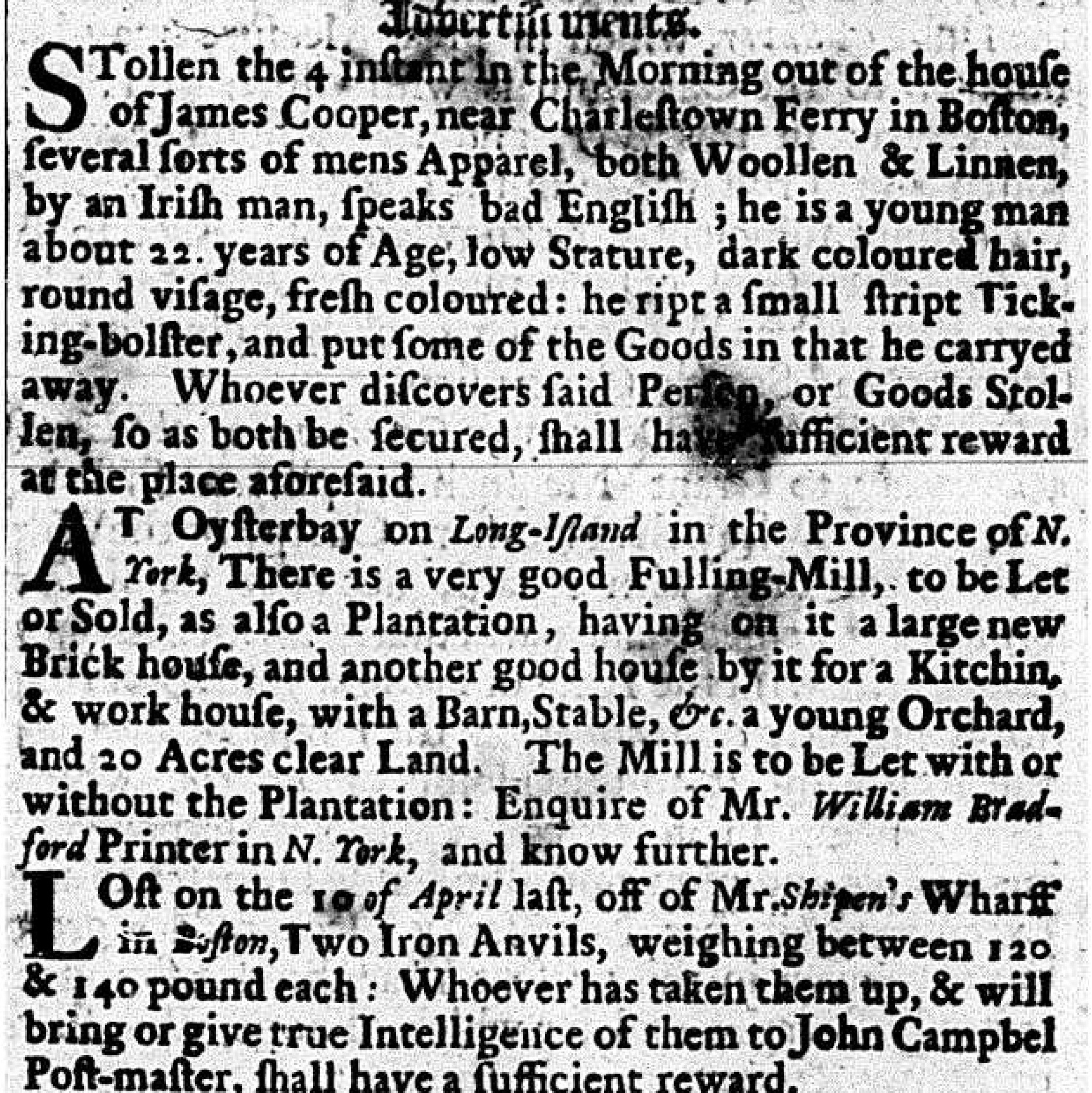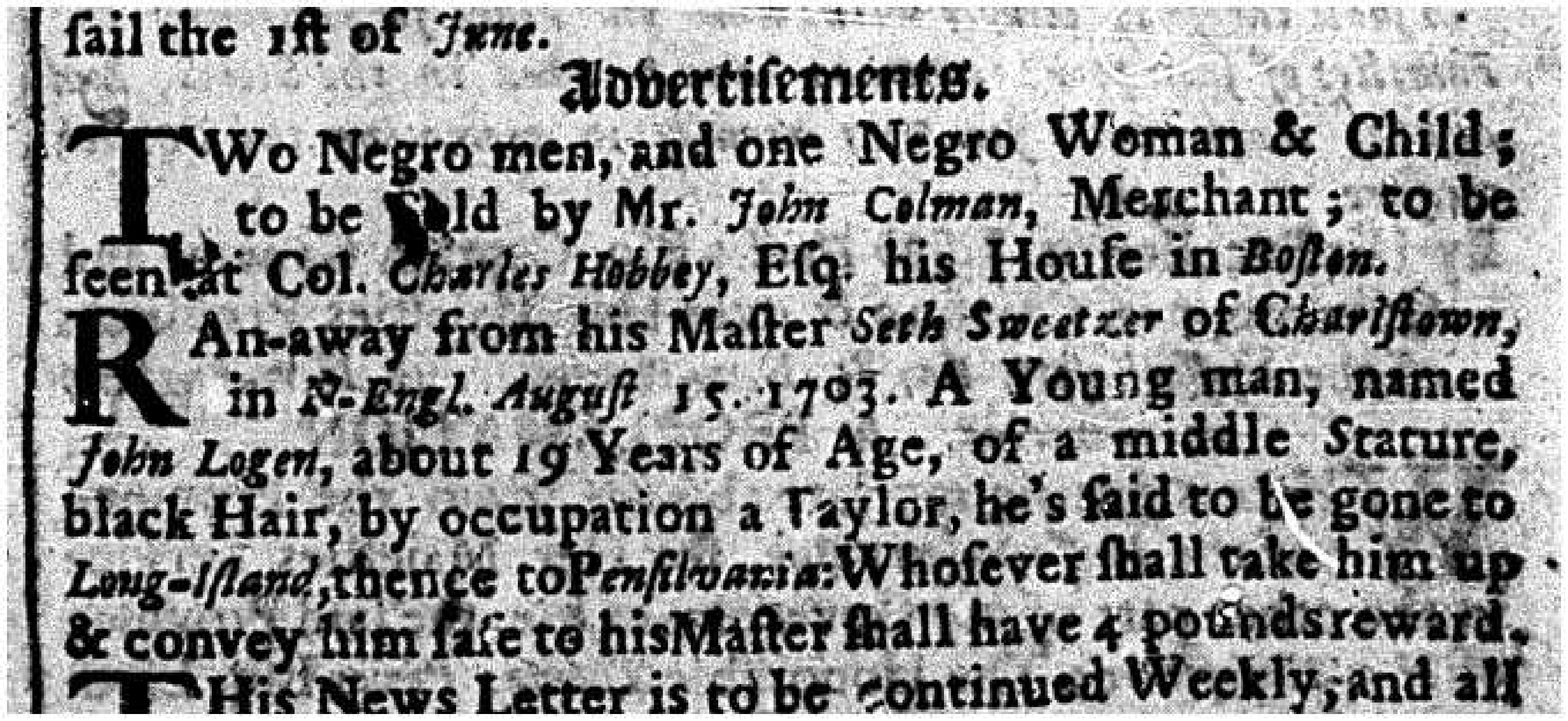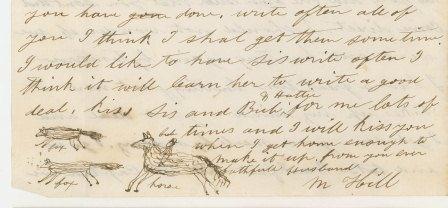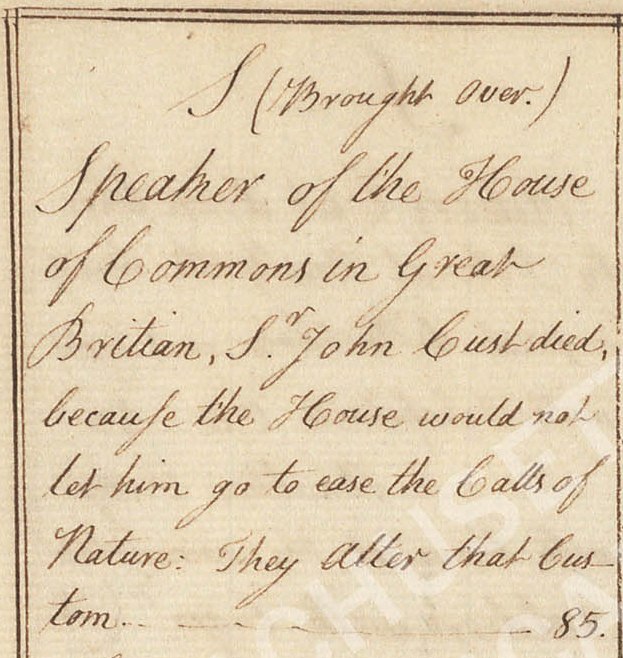By Andrea Cronin, Reader Services
Of the many social club records held by the Massachusetts Historical Society, the Brookline Whist Club’s records are unique. Established in early 1874, the Whist Club’s members gathered to socialize with crackers, cheese, and sherry and to play whist. The club’s record book curiously holds far more whimsy than winning records; it does not contain proceedings of the organization or lists of appointed officers, but rather a volume of poetry produced during the Saturday evening meetings.
The Brookline Whist Club record book contains many poems created by members of the club, including Thacher Loring, Robert S. Peabody, Moorfield Storey, and Charles Storrow. The poetry was most likely later recorded into the volume by a single unknown individual, but in most cases the individual poets are identified. Boston lawyer and financier Moses Williams recited this small poem as recorded into the volume.
Moses.
A flight of fancy takes me,
the divine afflatus shakes me,
And I quiver with the thoughts of that thro me thrill,
As before my sight them passes,
Such a group of lads and lasses
That my song with sweetest memoirs of I would fill
For those readers wondering, “what is in the world is whist,” whist is a 17th-century English card game closely related to bridge, which was hugely popular in the 19th century. Four people play in two partnered teams, using a 52-card deck. Each player is dealt 13 cards. The object of the game is to win tricks, which is accomplished by playing the highest value card of a particular suit in each round. According to a longtime member of the club, Edward Stanwood in Annals of the Brookline Whist Club, 1873-1907, his club played by the following rules:
Short whist is the game. Five points constitute a game. If more than eight members are present, the waiting member is taken in at the table at which a rubber is first finished, when the players “cut out,” “the highest out.” At the conclusion of the next rubber the newcomer stays and the other three cut out; then one of the two who have been longest playing retires; and finally the fourth man retires sua sponte. If ten members are present they retire from and enter the game by twos. Each member keeps an account of the number of games he has won and lost.
If you would like to read more poetry produced by the Brookline Whist Club, please visit the library to view the Brookline Whist Club record book. You can learn more about the club’s background in Edward Stanwood’s Annals of the Brookline Whist Club, 1873-1907.








